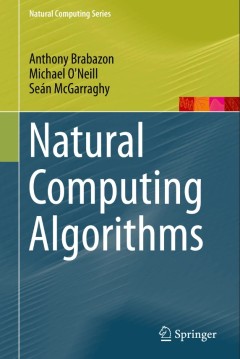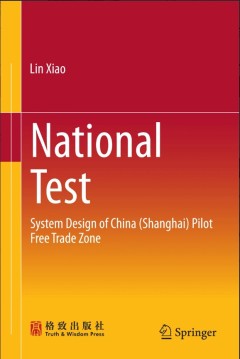Filter by

The Value of Wellness in the Workplace A Perspective of the Employee-Organis…
This book examines the links between employee-organisation relationships, work wellness and the impact thereof on the labour market from a South African perspective. By employing this focus, the book explains the role of the employment relationship and the psychological contract in improving work wellness. To do so, it reviews the establishment and management of contracts in the context of labo…
- Edition
- -
- ISBN/ISSN
- 978-981-287-402-3
- Collation
- -
- Series Title
- -
- Call Number
- -

The Value of Social Media for Predicting Stock Returns Preconditions, Instru…
Michael Nofer examines whether and to what extent Social Media can be used to predict stock returns. Market-relevant information is available on various platforms on the Internet, which largely consist of user generated content. For instance, emotions can be extracted in order to identify the investors' risk appetite and in turn the willingness to invest in stocks. Discussion forums also provid…
- Edition
- -
- ISBN/ISSN
- 978-3-658-09508-6
- Collation
- -
- Series Title
- -
- Call Number
- -

The Use of Risk Budgets in Portfolio Optimization
Risk budgeting models set risk diversification as objective in portfolio allocation and are mainly promoted from the asset management industry. Albina Unger examines the portfolios based on different risk measures in several aspects from the academic perspective (Utility, Performance, Risk, Different Market Phases, Robustness, and Factor Exposures) to investigate the use of these models for ass…
- Edition
- -
- ISBN/ISSN
- 978-3-658-07259-9
- Collation
- -
- Series Title
- -
- Call Number
- -

Empirical Economic and Financial Research Theory, Methods and Practice
The purpose of this book is to establish a connection between the traditional field of empirical economic research and the emerging area of empirical financial research and to build a bridge between theoretical developments in these areas and their application in practice. Accordingly, it covers broad topics in the theory and application of both empirical economic and financial research, includ…
- Edition
- -
- ISBN/ISSN
- 978-3-319-03122-4
- Collation
- 45 b/w illustrations, 27 illustrations in colour
- Series Title
- -
- Call Number
- -

Emotion in Group Decision and Negotiation
The volume offers an exploration of methods for analysis of emotion in negotiation, such as cognitive modeling, discourse analysis, all testing, subsequent multidimensional scaling, impression rating, and graph modeling for conflict resolution, reasonable and unreasonable disagreement. It covers activities, such as business negotiation, conflict solving, bargaining, task management meetings,…
- Edition
- -
- ISBN/ISSN
- 978-94-017-9963-8
- Collation
- XI, 218
- Series Title
- -
- Call Number
- -

Natural Computing Algorithms
The field of natural computing has been the focus of a substantial research effort in recent decades. One particular strand of this research concerns the development of computational algorithms using metaphorical inspiration from systems and phenomena that occur in the natural world. These naturally inspired computing algorithms have proven to be successful problem-solvers across domains as div…
- Edition
- 1
- ISBN/ISSN
- 978-3-662-43630-1
- Collation
- XX, 554
- Series Title
- Natural Computing Series
- Call Number
- -

The Twenty-First Century Commercial Space Imperative
Young addresses the impressive expansion across existing and developing commercial space business markets, with multiple private companies competing in the payload launch services sector. The author pinpoints the new markets, technologies, and players in the industry, as well as highlighting the overall reasons why it is important for us to develop space. NASA now relies on commercial partners …
- Edition
- -
- ISBN/ISSN
- 978-3-319-18929-1
- Collation
- -
- Series Title
- -
- Call Number
- -

Modelling Behaviour
This book reflects and expands on the current trend in the building industry to understand, simulate and ultimately design buildings by taking into consideration the interlinked elements and forces that act on them. This approach overcomes the traditional, exclusive focus on building tasks, while posing new challenges in all areas of the industry from material and structural to the urban scale.…
- Edition
- 1
- ISBN/ISSN
- 978-3-319-24206-4
- Collation
- XXV, 544
- Series Title
- -
- Call Number
- -

National Test:System Design of China (Shanghai) Pilot Free Trade Zone
This book discusses the latest developments in the China Pilot Free- Trade Zone strategy. It puts forward and explains the idea that building the Shanghai Pilot Free-Trade Zone (SFTZ) is a national test, as it is a major strategic decision to help China cope with the new situation resulting from opening-up and the further implementation of the reform. Based on China’s strategic demand in the …
- Edition
- 1
- ISBN/ISSN
- 978-981-10-0217-5
- Collation
- XXII, 430
- Series Title
- -
- Call Number
- -

The Transitions of Aging
om its first stage where the threat of infectious diseases loom large, through the transitional stage, and on to the modern era, where non-communicable diseases are the primary cause of death. Next, the book examines the age-profiles of people whose childhoods coincide with the different stages of the Epidemiologic Transition. Using data from England and Wales, one of the few places that have …
- Edition
- -
- ISBN/ISSN
- 978-3-319-14403-0
- Collation
- -
- Series Title
- -
- Call Number
- -
 Computer Science, Information & General Works
Computer Science, Information & General Works  Philosophy & Psychology
Philosophy & Psychology  Religion
Religion  Social Sciences
Social Sciences  Language
Language  Pure Science
Pure Science  Applied Sciences
Applied Sciences  Art & Recreation
Art & Recreation  Literature
Literature  History & Geography
History & Geography